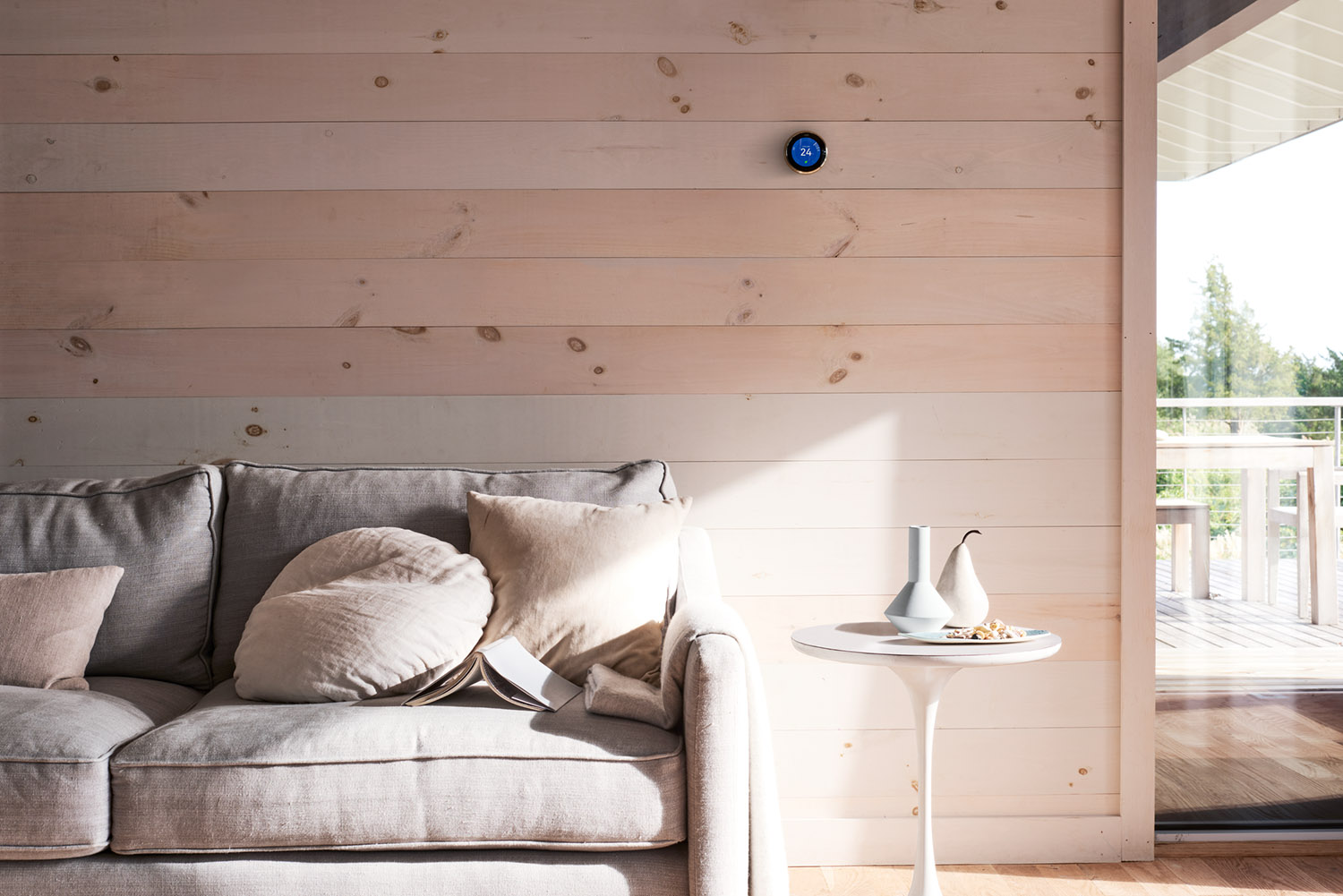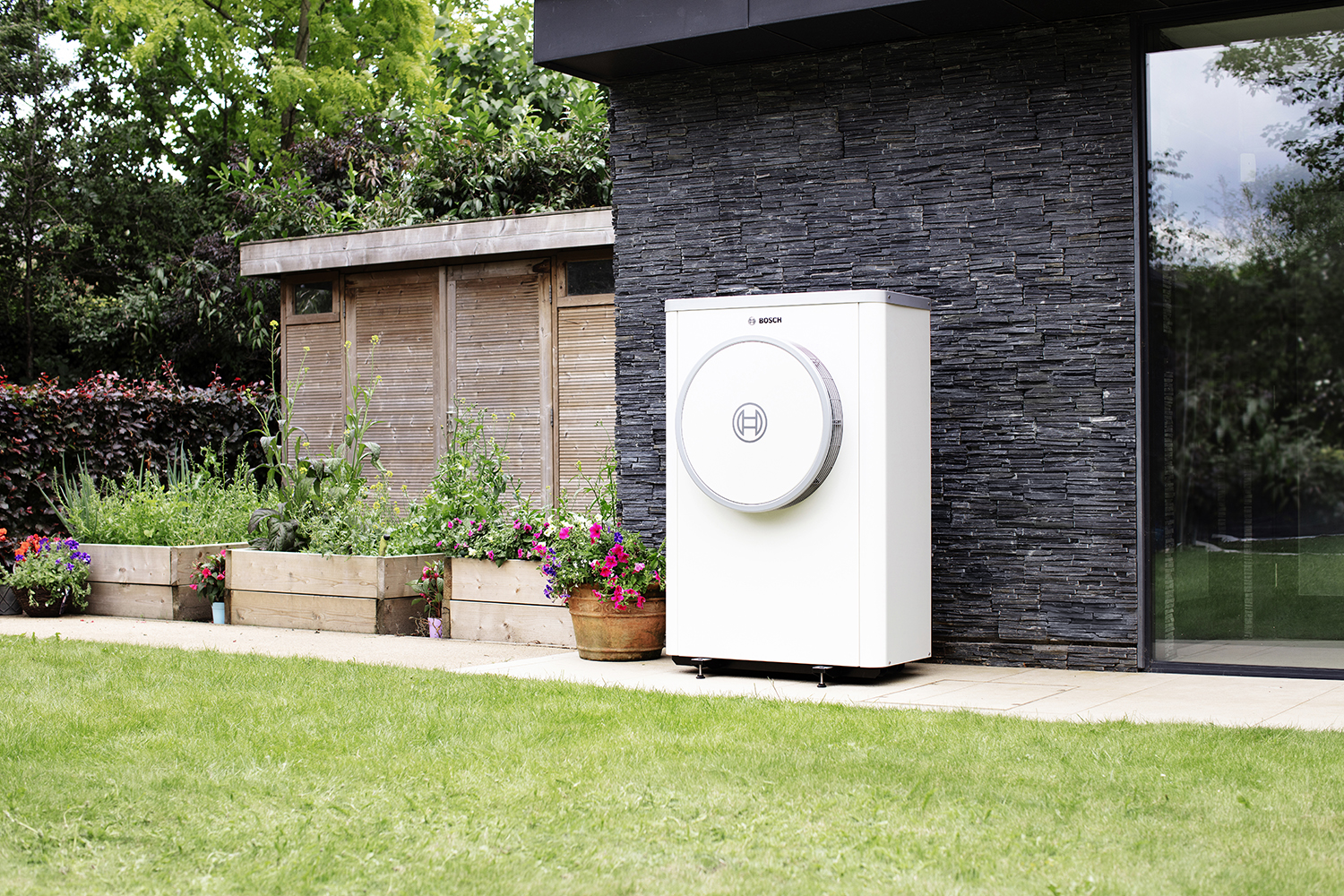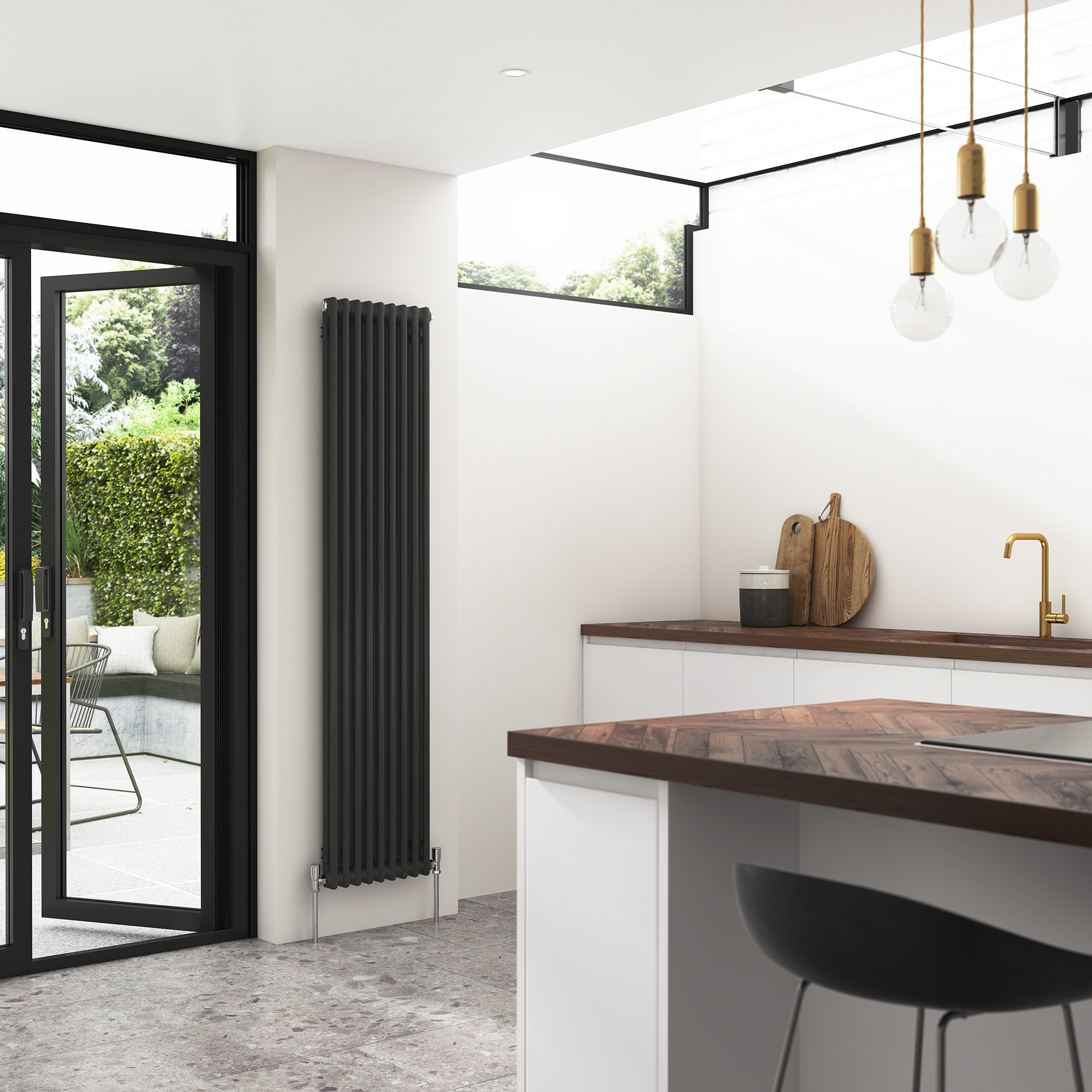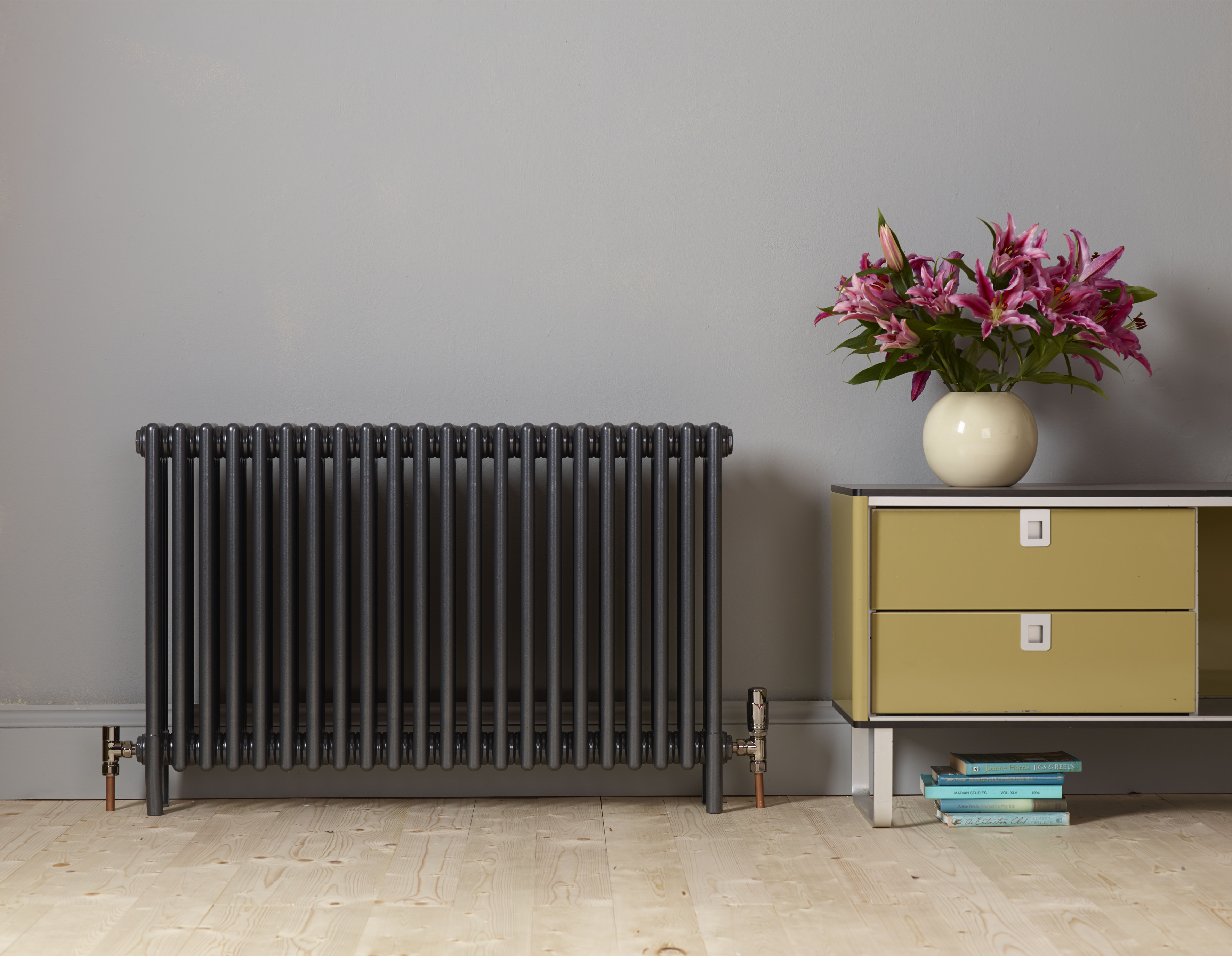Air source heat pump systems explained
Air source heat pump systems are hot topics in the news right now - but are they right for your home?


The popularity of air source heat pumps - or ASHPs - is partly due to the rise in new technology, design and installation improvements. But it’s mainly due to the Net Zero emissions targets which need to be achieved by 2050, and finding other ways to heat our homes that doesn’t rely on gas boilers. In their latest report The International Energy Agency stresses that no new gas boilers should be sold after 2025 and heat pumps are seen to be a better, low-carbon and greener alternative.
As one of the most talked about types of heating, air source heat pumps can cut carbon emissions, the UK government has implemented new schemes to incentivise the transition to green living and alternative energy use, and heat pumps are included in this.
And an announcement today is that homeowners in England and Wales will be offered subsidies of £5000 from next April to help them to replace old gas boilers with low-carbon heat pumps.
Since October 2020, the Checkatrade website has seen a 42.6% rise in searches for air and ground heat source pumps and a 99% increase in searches for solar panel installation.

How do air source heat pumps work?
The air source heat pump works by sitting outside your house, and is connected to your existing central heating system. You’re simply replacing heat provided by a gas boiler with heat from the heat pump, removing the carbon emissions associated with using fossil fuels. It is a long lasting, low maintenance way to reduce the carbon emissions of your central heating. It’s also a way to future-proof your home.
‘Heat pumps are highly efficient and prefer to deliver heat more consistently, making your home more comfortable with fewer fluctuations in temperature,' says Max Halliwell, Communications Manager of Mitsubishi Electric. 'Modern systems can also integrate with smart home devices to be controlled remotely.’
In the US, a popular type of air source heat pump is the mini-split or ductless system. This has a relatively small outdoor compressor unit and one or more indoor air handlers which can be added to if the house if remodeled or extended. Many heat pump systems can be switched to air conditioning mode in the summer for a complete HVAC system.
There are two types of ASHPs: air-to-water and ground source and air-to air. Depending on which one you choose, determines the type of heat distribution you need. Ground source heat pumps take thermal energy from underground.
The Livingetc newsletters are your inside source for what’s shaping interiors now - and what’s next. Discover trend forecasts, smart style ideas, and curated shopping inspiration that brings design to life. Subscribe today and stay ahead of the curve.
Air-to-Water Air Source Heat Pumps explained
Air-to-Water Air Source Heat Pumps are the most common model in the UK and work by absorbing heat from the outside air which goes through a compressor and transfers the heat to water. It distributes the heat via your wet central heating system and radiators. Heat pumps work much more efficiently at a lower temperature than a standard boiler would, so this makes them suitable for use with underfloor heating systems or larger radiators, which give out heat at lower temperatures over longer periods of time.
What are the advantages of an air-to-water heat pump?
The advantages of an air-to-water heat pump are:
1. It could lower your fuel bills
2. It will cut your carbon emissions
3. It can heat your home and hot water
4. There is less maintenance such as boiler servicing
5. Better safety as there is no gas to worry about
6. It uses electricity which is sustainable
7. It offers a constant, stable level of heat

What are the disadvantages of an air-to-water heat pump?
The disadvantages of an air-to-water heat pump are:
1. The upfront costs are higher than a gas boiler but comparable with an oil heating system.
2. You will need an outside compressor and space to put this
3. They need to be installed by a trained professional
4. Planning permission is sometimes required
‘Heat pumps are ideal for new-build, well-insulated homes or older homes that are not on the mains gas network,' says Andy Kerr, founder of smart home systems installer Boxt. 'But if you are replacing a gas or oil boiler with a heat pump, it’s a complex installation and sometimes requires the whole of the heating system to be replaced, so beware, there could be a lot of upheaval.’
Ground Source Heat Pumps explained
Ground Source Heat Pumps - or GSHP’s - use pipes that are buried in the garden to extract heat from the ground. This heat can then be used to heat radiators, underfloor or warm air heating systems and hot water in your home. It circulates a mixture of water and antifreeze around a loop of pipe, called a ground loop, which is buried in your garden.
Ground source heat pumps take thermal energy from underground. Heat from the ground is absorbed into a fluid and then passes through a heat exchanger into the heat pump. The length of ground loop depends on the size of your home and the amount of heat you need. Longer loops can draw more heat from the ground, but need more space to be buried in. If space is limited, a vertical borehole can be drilled instead.
What are the advantages of a ground source heat pump?
The advantages of a ground source heat pump are:
1. It could lower your fuel bills
2. In the UK, it could provide you with an income through the UK Government’s RHI scheme.
3. It could lower home carbon emissions, depending on which fuel you are replacing.
4. There are no fuel deliveries needed
5. It will heat your home as well as your water
6. There is minimal maintenance required.
7. Unlike gas or oil boilers, heat pumps deliver heat at lower temperatures over much longer periods.
8. The temperature of the ground is fairly fixed at a constant 10—13C all year round, so a ground source heat pump remains consistently efficient throughout the year and isn’t affected by seasonal changes.
What are the disadvantages of a ground source heat pump?
The disadvantages of a ground source heat pump are:
1. There is a high up front cost to install them
2. Your garden will need to be big enough and the ground suitable for a trench to be dug or a borehole and you will need access to the garden for digging machinery.
3. In winter, it may need to be on constantly to heat your home efficiently, but radiators won’t feel as hot to the touch as with a gas or oil boiler.
4. They are often more difficult to install than air source heat pumps.
5. You may need to add extra insulation and draught-proofing for it to be effective.
Air-to-Air Source Heat Pumps explained
Air-to-Air Source Heat Pumps work in the same way as an air-to-water heat pump by taking in heat from the outside air. But it will need a ducting or circulation system to move the warm air around your home.
What are the advantages of an air-to air-source heat pump?
The advantages of an air-to air-source heat pump are:
1. It could lower your fuel bills, especially if you are replacing conventional electric heating.
2. It is energy efficient
3. It will lower home carbon emissions
4. There are no fuel deliveries required
5. It can be easier to install than a ground source heat pump (air-to water heat pump)
6. It can offer both heating and cooling
What are the disadvantages of an air-to-air heat pump?
The disadvantages of an air-to-air heat pump are:
1.It won’t heat the hot water as well
2. Currently it isn’t covered by the UK Government’s Renewable Heat Incentive (RHI) scheme.
Do air source heat pumps work with radiators?
Air source heat pumps do work with radiators in the same way a boiler does. However, heat pumps use lower temperature water than traditional systems and to be effective it is sometimes necessary to change some of the existing radiators.
‘If you are thinking of installing a heat pump, you don’t necessarily need to get new radiators,' says Chris Harvey of Stelrad Radiators. 'But there is a chance your existing ones could be too small for the system. In this case, you’d need to add more radiators for the heat pump to work efficiently.’

Is an air source heat pump worth it?
An air source heat pump is worth it, in general terms, if you wish to heat your home in a sustainable way. ‘Heating our homes in a traditional way means that we are releasing a significant amount of carbon emissions when it’s not necessary,' says Max Halliwell, of Mitsubishi Electric. 'Heat pumps are a future-proofed reliable and cost effective way to heat your home and will significantly reduce your carbon footprint.’ Air source heat pumps could be the next step you take on the road towards sustainable living.
Also ask yourself these questions:
Do I have somewhere to put the compressor/heat exchanger?
You’ll need a place outside your home where a unit can be fitted to a wall or placed on the ground. It will need plenty of space around it to get a good flow of air. For an air-to-water heat pump, the external unit is connected to an internal unit containing circulation pumps and hot water. As a general rule, air source heat pumps are easier to install than ground source heat pumps, as they do not require any land to be dug up for installation. However, you will need ducting or a circulation system to move the warm air around the house. The size of the air source heat pump will vary depending on your home’s heat demand – the bigger the home, the bigger the heat pump unit you’ll need.
Is my home well insulated?
Since air source heat pumps work best when producing heat at a lower temperature than traditional boilers, it’s important that your home is well insulated and draught-proofed to minimise heat loss. Or you might consider the addition of underfloor heating which can be switched on as required.
Consider the addition of solar panels
By combining heat pumps with solar panels, you can make your home self-sufficient and eco-friendly, regularly attaining more than 300% efficiency.
XXX PETER CURTAIN
Do I need planning permission for an air source heat pump?
You will possibly need planning permission for an air source heat pump. While air source heat pumps don’t take up too much outdoor space, the unit will be visible from the outside of your property, so it’s best to check with your local planning authority first, to find out if you need permission. As the unit is above ground, it will produce a noise similar to that of an air conditioning unit, which could be bothersome to you or your neighbors. Ultra-quiet models are available so always ask about noise levels.
Is an air source heat pump expensive to run?
This really depends on what system you use now, for example, a heat pump system is more likely to not seem expensive if it’s replacing an expensive system like oil or electric heating. You’re unlikely to save much on your heating bill if you are switching from mains gas but you will save on carbon emissions. It also depends on the size of your home, how well-insulated it is and what room temperatures you are aiming for.
Potential annual savings of installing a standard air source heat pump in an average sized, four bedroom, detached home in the UK could be between £255 - £970 with CO2 savings of between £270 - £1250. Figures based on fuel prices as of June 2021.
By combining heat pumps with solar panels, you can make your home self-sufficient and eco-friendly, regularly attaining more than 300% efficiency.
How much will does it cost to install an air source heat pump system?
Installing a typical air source heat pump system costs between $10,000 to $18,000, or £7,000 to £13,000.
At what temperature should you not use a heat pump?
Heat pumps do not work as effectively when temperatures drop to between 25 and 40 degrees Fahrenheit/-3 to 4 degrees Celsius. A heat pump is most efficient when the temperature rises higher than above 40 degrees Farenheit/4 degrees Celsius.
When the air temperature gets too low, heat pumps use more energy to heat your home, so are not as efficient as normal.
Do air source heat pumps work in cold weather?
Yes, air source heat pumps do still work in cold weather, and can still extract heat from the air when temperatures are as low as -20C, but they do use more energy to do this, and are less efficient.
There is an app called Wiser that can be used to control your heating which has a dedicated heat pump setting, that you can control from your phone. Wiser is a multi-room system, which gives you control and visibility of the temperature in every room. It allows you to create up to 16 individual heating zones depending on the room’s use.

Alison Davidson is well-respected British interiors journalist, who has been the Homes Editor of Woman and Home magazine, and the Interiors Editor for House Beautiful. She regularly contributes to Livingetc, and many other titles, and often writes about kitchens, extensions, and decor ideas. She is the go-to for information about green energy, sustainable home improvement and eco design ideas.